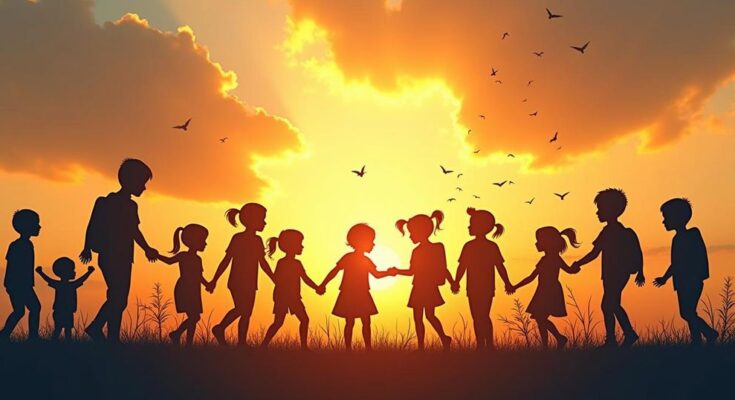Aisha O’Neil’s journey from a love for nature to becoming a climate action advocate in Colorado highlights the gaps in climate education. She founded Good Trouble and lobbied for a climate literacy seal for high school graduates. The article discusses the need for comprehensive climate education that includes principles of climate science, justice, and actionable solutions. Initiatives, including a guide from the U.S. Global Change Research Program, aim to empower students and educators. The importance of equipping youth with hope and engagement in climate discourse is emphasized.
Aisha O’Neil, raised in Zion National Park by a ranger, developed a deep commitment to the environment from a young age. Despite her passion, she found climate change education in school lacking, with most awareness stemming from alarming news reports. During her senior year in rural Durango, Colorado, Aisha founded a statewide climate action initiative named Good Trouble, which successfully lobbied for a bipartisan bill to establish a ‘seal of climate literacy’ for high school graduates in Colorado. This achievement underscores the belief that education devoid of climate change discussions fails to prepare students for their future. The concept of climate literacy encompasses understanding climate science, human impacts, equity issues, and practical solutions. Recent efforts, led by the U.S. Global Change Research Program, have culminated in the provision of essential climate literacy principles, such as the impact of greenhouse gases, the need for climate justice, and proactive adaptation and mitigation strategies. These principles aim to shape a more informed and engaged citizenry, capable of addressing climate challenges. One of the newly released guides highlights the evolution of climate education and aims to reach educators across disciplines, fostering urgency balanced with hope. It also intends to equip students with the tools they need to engage critically and take action against the climate crisis, rather than feeling overwhelmed by it. In Colorado, the pathway to earning the ‘seal’ requires students to engage both in coursework and additional climate-related activities, positioning youth to grasp the realities of climate change and seek solutions. Nevertheless, the execution of climate education standards remains inconsistent, even in states like New Jersey, where concerns about adequate resources for implementation have surfaced. Aisha, now attending the University of Colorado Boulder, emphasizes the necessity for comprehensive climate education that transcends science alone, incorporating aspects of social justice, policy awareness, and actionable strategies. As Aisha succinctly states, “Being taught about issues in a way that emphasizes solutions is telling our youth that they can be part of progress and that the world is not doomed.” It is imperative to cultivate an educational framework that empowers the next generation with hope and agency in the face of climate change.
The article focuses on the critical importance of incorporating climate literacy into educational curricula to prepare students for contemporary environmental challenges. Aisha O’Neil’s journey from a passionate student to a climate advocate highlights the gaps in current educational frameworks concerning climate change, where often lessons are limited to scientific information without addressing broader implications, solutions, or avenues for engagement. The establishment of a climate literacy seal in Colorado represents efforts to enhance the quality and comprehensiveness of climate education. Furthermore, global initiatives emphasize the necessity for learners to understand the multifaceted aspects of climate change, engaging with the social, environmental, and policy-related dimensions.
In conclusion, the integration of climate literacy into educational systems is essential for preparing students to face a changing world. With effective frameworks and resources, students can develop critical skills and a sense of agency in addressing environmental issues. Initiatives like the climate literacy seal in Colorado represent significant steps toward empowering youth to engage with climate change proactively, ensuring they are not only informed but also equipped to contribute to a sustainable future. As Aisha O’Neil aptly illustrates, emphasizing solutions over despair can inspire the next generation to become active participants in climate action.
Original Source: hechingerreport.org




